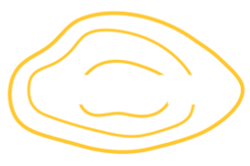Red Hat Leftovers
-
Stratis 3.3.0 Release Notes
Stratis 3.3.0 includes one significant enhancement and several smaller enhancements as well as number of stability and efficiency improvements.
Most significantly, Stratis 3.3.0 extends its functionality to allow users to instruct stratisd to include additional space that may have become available on a component data device in the space that is available to the device's pool. The most typical use case for this is when a RAID device which presents as a single device to stratisd is expanded.
stratis supports these changes with a new command stratis pool extend-data that allows the user to specify that the pool should make use of additional space on its devices. The stratis pool list command has been extended to show an alert if a pool's device has changed in size. The stratis blockdev list command will display two device sizes if the size that stratisd has on record differs from a device's detected size.
-
Digital transformation: How manufacturers align maintenance and production
The digital transformation of a manufacturing plant is a complex process in itself and making sure it achieves the enterprise goals can be even more challenging. This is also the difference between adopting and using new technologies and a successful digital transformation.
As an IT leader in the manufacturing industry, you deal with all aspects of digital transformation, from the Industrial Internet of Things (IIoT) to data security. On top of that, you must keep plant floor issues in mind while planning any changes.
-
MLOps best practices for digital transformation
Across every industry, organizations are investing in artificial intelligence (AI) and machine learning (ML) to unlock business insights and make data-driven decisions. However, in our experience working with enterprises across multiple industries, we’ve seen that only half of all AI proof of concepts ever scale to production. Machine learning operations (MLOps) can help many enterprises substantially increase that success rate.
At its core, MLOps helps organizations consistently develop, deploy, monitor, and scale AI and ML models. It’s a framework for sustainable innovation and a process for scaling AI in enterprises, reducing costs, boosting efficiency, generating actionable insights, and creating new revenue opportunities.
-
RHEL 9 and single node OpenShift as VMs on macOS Ventura [Ed: Red Hat targeting Apple customers instead of Free software hackers is typical of what it became under IBM. They don't even use their own products.]

